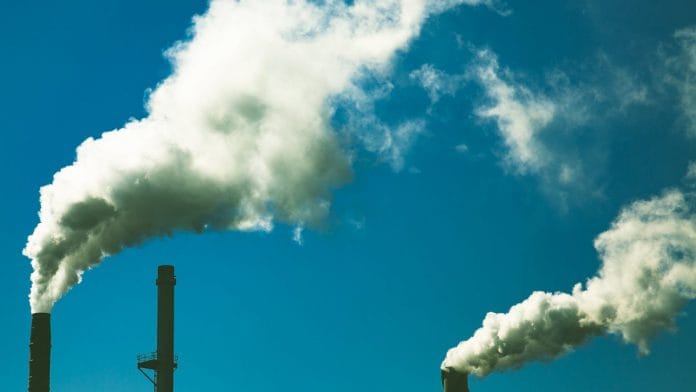London: The world appears to have reached the limit of its tolerance for economic disruption. Even as the novel virus continues to put lives at risk, governments around the world are beginning the process of reopening. More than $7 trillion has been committed to relief efforts just in the past three months, and many more trillions will need to be injected into the global economy in the coming months to help it recover.
With so much at stake, it matters whether governments get bang for their bucks. The world’s top financial thinkers agree: many of the most effective solutions are also those that reduce carbon emissions.
That conclusion comes from a survey of more than 200 central bankers, G20 finance minsters, and top academics from across 53 countries, conducted by a group of star economists that includes Nobel Laureate Joseph Stiglitz, among others. The results were released today in the Oxford Review of Economic Policy.
The authors fear that unless policymakers keep carbon emissions in mind, the world risks leaping “from the Covid frying pan into the climate fire.”
“We’ve already got enough capital stock to take us to 2° [Celsius of warming],” says Cameron Hepburn, professor of environmental economics at the University of Oxford, referring to the target set under the Paris climate agreement. There’s broad agreement in the scientific community that crossing that temperature threshold would unleash irreversible environmental changes that could lead to massive disasters, millions of deaths, and a poorer world for everyone. “If we load up another $10 trillion on fossil fuels, we can pretty much kiss Paris goodbye,” Hepburn says.
Most of the money spent so far has gone towards increasing liquidity in global markets, such as direct payment to citizens and loans for businesses, mostly without green strings attached. As governments move beyond providing relief to an economy on pause and begin to set a course for recovery, however, climate objectives may come more into play.
Stiglitz and Hepburn, along with colleagues such as Grantham Research Institute Chairman Nicholas Stern, wanted to gauge the zeitgeist on stimulus among the world’s financial thinkers. Among the respondents to their survey were Laurence Boone, chief economist at the Organization for Economic Co-operation and Development; Sylvie Goulard, deputy governor of France’s central bank; Gus O’Donnell, former economist for the UK government; and Sandra Eickmeier, senior economist at Germany’s central bank. Many are in a position to exert direct influence over where stimulus dollars wind up.
Their task: rank 25 different economic policies—many of which were used to boost recovery after the financial crisis of 2008-09—on four characteristics: how quickly the policy could be deployed; what economic return would it bring for each $1 of public money spent; for how long would it provide returns; and how much it would contribute to lowering emissions.
Beyond liquidity measures, the top preferences were for policies with major climate benefits such as clean energy research and infrastructure, disaster preparedness, and zero-carbon transportation. In practice, that might mean funding for things like electric vehicle charging stations and grid modernization, coastal rehabilitation, and research grants in areas such as energy storage and carbon capture.
Also read: India sees widest budget gap in 6 years as it breaches target on poor tax collection
Few governments are considering austerity measures this time around—likely because countries like the U.K. that followed the deficit-reduction track the last time around have been hit hard during the pandemic as poorly funded healthcare systems have come under pressure.
“It’s interesting to see that financial minds are turned towards green policies for economic recovery,” says Maeva Cousin of Bloomberg Economics. “Much more so than in 2009.” The results of the survey bode well as a prediction for the kinds of economic recovery the world is likely to see. But Cousin also warns that politics could come in the way of green recovery in certain sectors of the economy.
Tourism and aviation, for instance, are likely to get bailed out even without green conditions because of the sheer number of people they employ—even though airline bailouts were ranked lowest by survey respondents from both economic and environmental perspectives. Other policies that received little enthusiasm included income tax cuts, liquidity for large corporations, and non-green infrastructure spending.
Overall, however, Hepburn is pleased that the wisdom of the crowd tilted toward largely tilted towards economics policies that are inherently green. “If policymakers can be conscious of the potential to solve two problems with one set of actions,” he says, “then there’s a reasonable chance that they will.”-Bloomberg
Also read: Rising CO2 emissions could change the way human brains work, study says






